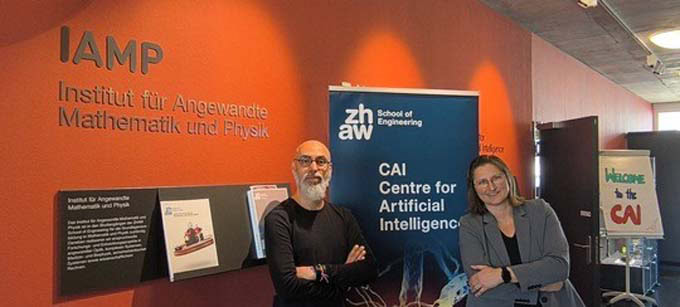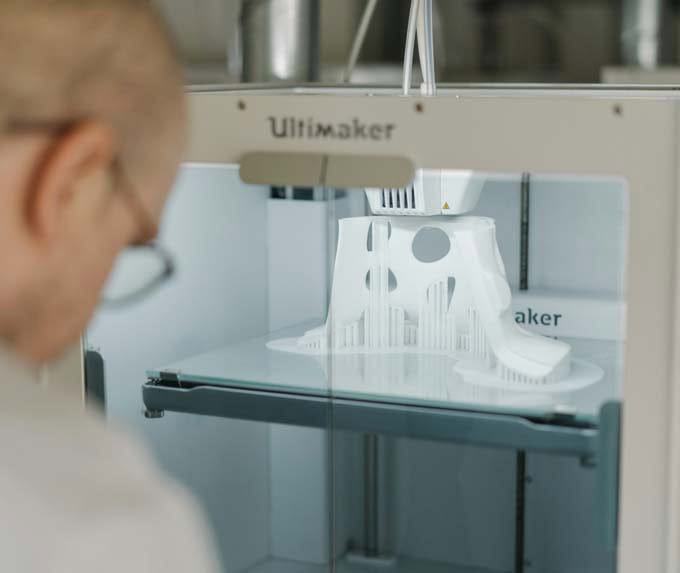Low Value Care: Overuse and misuse under the microscope
Unnecessary or incorrect treatments, often referred to as "low value care," are considered avoidable risk and cost factors in healthcare. A study by the University of St. Gallen with data from Groupe Mutuel uses two clinical pictures as examples to show how patients can be treated better while saving costs.

Low value care refers to services that provide little or no benefit to patients or even potentially cause harm. This results in unnecessary costs and scarce healthcare resources are wasted or not used effectively.
New study examines impact of low value care on two chronic diseases
A new study by the University of St. Gallen with data from Groupe Mutuel examines two aspects of the care pathway of two widespread chronic diseases on Low Value Care. Chronic obstructive pulmonary disease (COPD) and coronary heart disease (CHD) were chosen for this purpose because of their prevalence and the high level of suffering experienced by patients.
COPD was the third leading cause of death worldwide in 2019. In Switzerland, at least 400,000 people suffer from the incurable lung disease, at an estimated cost of CHF 603-847 million per year. Appropriate use of medications can slow the worsening of symptoms, stabilize quality of life and reduce the risk of hospitalization due to an acute worsening of health - a so-called exacerbation. Accordingly, analysis of Groupe Mutuel data shows that patients who regularly take long-acting medications have an approximately 50% lower risk of experiencing an exacerbation.
The problem is, among other things, that medications are not taken as prescribed, e.g. daily. The study shows: Nearly half of patients had adequate medication reserves at home less than 40% of the time. This means that a significant proportion of patients do not take their medications as prescribed over a period of time. This can lead to exacerbations, which also have a negative impact on healthcare costs. The analysis of the Groupe Mutuel data accordingly shows that the healthcare expenditure of COPD patients who do not take their medication regularly is on average around CHF 10 000 higher compared to patients who take their medication regularly.
"The results of this study indicate that it is time to develop digital health applications for chronic diseases. This could better ensure structured quality-optimized treatment programs that, for example, help patients take their medication as prescribed," says Alexander Geissler, Academic Director and Chair of Healthcare Management at the University of St. Gallen.
Too many invasive/cost-intensive diagnostic procedures
CHD is one of the most common cardiovascular diseases and a leading cause of mortality and hospital admissions in Switzerland. The study weighs the two diagnostic pathways of coronary CT versus invasive coronary angiography. Medical guidelines indicate that coronary CT is preferable to invasive coronary angiography for initial diagnosis in many patients. A coronary CT is noninvasive and there is no need to place a catheter in the heart, meaning there is no risk of anesthesia, infection, or complications for the patient. At the same time, it incurs less cost. The study finds that thanks to an optimized diagnostic pathway, there is a potential saving of approximately CHF 5 million per year for Groupe Mutuel policyholders when patients are treated using the cost-efficient diagnostics.
Through this commissioned study, Groupe Mutuel aims to contribute to improving the quality and efficiency of medical care for its policyholders: better outcomes at lower cost and risk increases value for patients. "Regarding research, our current focus is on overuse and misuse of care. It is becoming increasingly important to address existing inefficiencies in our healthcare system as resources become scarcer, making overuse and misuse of care particularly problematic in terms of low value care," says Daniel Volken, Head of General Secretariat at Groupe Mutuel.
Source: Groupe Mutuel









